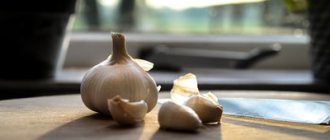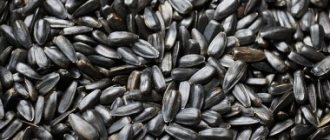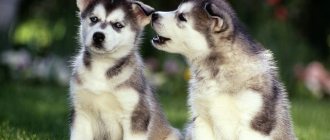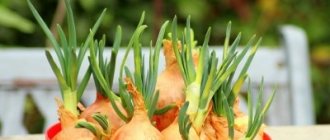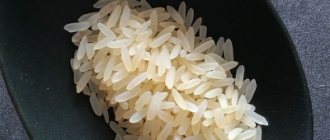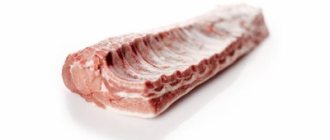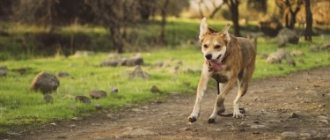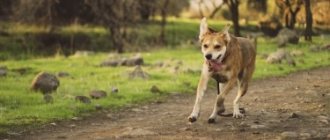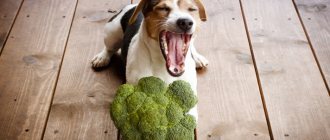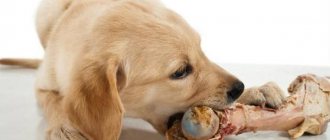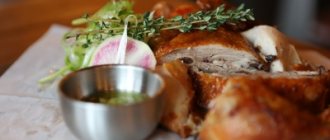I hope that after reading this material, adherents of meat feeding and a raw food diet will not throw rotten tomatoes at us. And at the end of the article, we won’t get a unique Italian pasta with tomato sauce...
After all, today we will talk about whether dogs can have pasta? Should this product be included in the diet, or should it be completely excluded?
We do not make any recommendations. We’ll just try to cover this topic with an open mind and talk about the benefits and harms of pasta for dogs.
Most dogs are food eaters. That is, they eat whatever the owner offers them. However, in order not to harm the health of your furry friend, it is important to properly prepare his nutritious diet. Especially if your dog is straight.
Pasta
Pasta contains only wheat and water, so it is not harmful to dogs .
If the animal is not allergic to wheat, then you can feed it pasta. But you don’t need to get carried away, because there is no particular benefit from them. Reference! Veterinarians do not prohibit feeding dogs flour products, but they do not recommend them either. They have almost no nutrients. It is better to mix pasta into a mixture of cereals for animals, which is used as an additive to boiled meat.
Benefit or harm?
High-quality pasta made from durum wheat has a low starch content. Allowed in small doses for feeding animals . Pasta retains vitamin B. It takes part in metabolism and normalization of the central nervous system.
When an animal lacks vitamin B, the muscular and nervous systems begin to suffer. The dog sharply loses weight, becomes inactive, swelling and convulsions appear. Her condition is getting worse.
Pasta also contains vitamin E , which helps muscle muscles to fully develop and maintains the pet’s reproductive function at the desired level.
Compared to humans, dogs do not need a variety of foods. The main thing is that it contains carbohydrates, fats and proteins. There should be the least amount of carbohydrates , since the animal’s digestive tract cannot digest them in large quantities.
Dough products are carbohydrate foods, so they should be minimal in the animal’s daily menu. An excess of carbohydrates can cause obesity, pancreatitis and diabetes.
Inexpensive pasta and instant pasta are poison for pets. You should not skimp on animal nutrition. Cheap pasta can get stuck between your teeth or stick to the roof of your mouth. Constipation or indigestion may also occur.
Important! Your four-legged pet's daily menu must include iron and calcium. They help the development of the skeletal system and muscle muscles of the animal. Iron is necessary for the delivery of oxygen to cells. Promotes the formation of red blood cells and energy metabolism.
Quantity and frequency
To prevent dough products from harming the health of the animal, they can be given no more than three times a week . The volume should not exceed a human fist.
The right diet
What can and cannot be given to your pet? Lists of permitted and prohibited products are below.
Can:
- Any meat.
- Offal.
- Fatty fish.
- Dairy products.
- Cheese as a treat.
- Any vegetables with low starch content.
- Fruits - apples and pears.
- Eggs.
- Cereals.
- Wheat bread in the form of croutons.
It is forbidden:
- Sausage and frankfurters.
- Smoked meats.
- Sweet.
- Potato.
- Citrus.
- Onion garlic.
- Baking.
Is it possible to give a dog pasta? This is a neutral product, it is not on any list.
Pregnant and lactating
For the growth and full development of puppies, the body of a pregnant dog needs “building material”. Calcium, proteins and vitamins must be present in the daily diet. Pasta should be excluded. They overload the animal's digestive tract.
All of the above applies to nursing dogs. What the mother ate, the baby also ate.
Any flour products, without exception, can be given to animals only in limited quantities.
Noodles are no exception. Just like pasta, it is made from water and grains, and sometimes from eggs. Can cause food allergies and other unpleasant consequences. If used in small doses, it will not harm animals.
It is strictly forbidden to feed dogs dry pasta. Once in the stomach, they swell greatly and turn into a paste. They can also injure the walls of the stomach or get stuck in the throat.
It is not recommended to give your dog funchose (rice noodles). It does not have a pronounced taste, but in addition to this, it also absorbs the aromas of the products with which it is cooked. If funchose is overcooked, it will become limp; if it is undercooked, it will stick to the teeth. The animal will not benefit from such food.
Still had to give me pasta?
Can a dog eat boiled pasta? As mentioned above, rarely and in small quantities. And without the sauce, it’s still not a person. The dog will happily eat the sauce, but what benefit will it bring to the dog? Absolutely none.
Before giving pasta to your pet, it must be properly boiled. Do not boil it, but boil it well. There should not be any slight “dampness”; dogs should not have poorly cooked foods - either raw or well-cooked. In the case of pasta, the raw option, of course, is not suitable.
If the animal becomes ill from what it eats
Dogs are not picky eaters, so they often eat everything. If you overeat pasta, gas formation or intestinal volvulus may occur.
The owner of the animal should immediately contact a veterinarian. When examining the dog, he will prescribe treatment. This may involve gastric lavage with a special probe. In emergency situations, puncture of the abdominal cavity to remove accumulated gas.
Sample menu for the week
How to feed your pet while saving money? Advice - buy an inexpensive chicken soup set, or at worst - minced chicken. These are the cheapest meat products. The chicken will last for 7 days. Especially if the carcass is large.
Below is a table with a dog's diet in case of economy mode. The menu is designed for a week. Adjustments taking into account the owner’s capabilities are a given.
| Day of the week | Morning | Evening |
| Monday | Oatmeal with chicken | Barley porridge with carrots and cabbage |
| Tuesday | Carrot, cabbage and rice soup | Cottage cheese with kefir |
| Wednesday | Pasta with vegetable oil | Porridge of oatmeal, buckwheat and rice with minced meat or chicken |
| Thursday | Vegetable stew: carrots, zucchini, cabbage with egg | Oatmeal with chicken or minced meat |
| Friday | Cottage cheese with kefir | Pasta with egg |
| Saturday | Carrot soup with zucchini and oatmeal | Barley porridge with chicken or minced meat |
| Resurrection | Oatmeal porridge with minced meat or chicken | Vegetable stew with buckwheat |
As can be seen from the table, the question of whether dogs can have pasta has been resolved. Maybe infrequently and a little.
What else should I feed?
Pasta is not the basis for proper animal nutrition. They can be completely excluded from the diet. This will not affect the pet's condition in any way.
You need to feed your dog fresh and high-quality food . It should include proteins, vitamins, microelements, carbohydrates and fats. It is better to exclude preservatives and dyes.
The menu must include:
- meat (lean beef, chicken, turkey, offal);
- fish (sea or ocean, lean, boneless);
- dairy products (no additives, sugar, fruit, not very fatty);
- vegetables and herbs (carrots, pumpkin, cucumber, zucchini, dill, parsley);
- raw chicken egg (3-4 times a week);
- porridge (rice, buckwheat).
On our website there are detailed articles about the effects on dogs of other cereals (corn, wheat, millet) as well as dairy (milk, kefir, cottage cheese) and other products (cabbage, peas, eggs, honey, nuts, etc.).
Contraindicated:
- raw meat (possibly infected with parasites);
- bones, tails and necks (small particles scratch the intestinal walls, clog the stomach, remain between the teeth);
- boiled potatoes (can cause diarrhea);
- mushrooms (toxic, cause poisoning);
- avocado (intoxication, stomach upset);
- low-quality dry food (metabolic disorders);
- sweets (reduces the functioning of the pancreas);
- alcohol (provokes addiction, intoxication, induces coma);
- dough (bloating occurs);
- nuts (negatively affect nerve cells);
- tobacco (poisoning, addiction);
- paper (cuts in the mouth).
Is it possible to give bread to a dog?
As a rule, a dog will never refuse a piece of bread. Some people love it in its pure form, while others adore the delicacy in the form of a slice soaked in meat sauce or sour cream. However, it is incorrect to say that all products that are beneficial to humans also benefit animals.
The digestive system of dogs, which are natural predators, has a characteristic feature. As long as the diet does not contain carbohydrate food, there are no digestive enzymes in the dog’s saliva.
As soon as the dog begins to eat bread, amylolytic enzymes that break down carbohydrates are activated. They are secreted by the cells of the salivary glands. Bread is a source of carbohydrates, so its amount must be kept under control, this is especially true for sedentary dogs.
Flour products are not the most necessary product in an animal’s diet, especially if they already receive carbohydrates in the form of porridge. You should not give your dog soft, fresh bread, as yeast provokes the fermentation process. This leads to disruption of the intestinal microflora, bloating, and colic. In addition, soft bread (including pancakes, pancakes, etc.), turning into a paste in the stomach of a pet, contributes to the occurrence of pathologies of the digestive tract.
Occasionally, you can pamper your pet with rye, whole grain crackers, and unleavened biscuits. In addition, a stale piece of bread can replace a toothbrush in cases where you need to remove plaque.
What is possible and what is not for Huskies?
It is important to know what you can feed your Husky and what is prohibited.
The animal's body needs proteins, fats and carbohydrates every day. For proper development and growth, the puppy requires polyunsaturated fatty acids. You also need fiber. Calcium is also important.
It is useful to include the following foods in your Husky's diet:
- Meat. This is a source of protein. Normally, it makes up 70% of the total food volume. It is advisable to choose low-fat varieties. For example, turkey, chicken, beef, venison.
- Offal. These include the heart, liver, trachea, spleen and lungs.
- Cartilage. Contains collagen, microelements and vitamins.
- Sea fish. This product is rich in iodine, phosphorus, amino acids, vitamins B, A, D. Contains micro- and macroelements.
- Porridge. It is useful to give rice, buckwheat and oatmeal. They help normalize intestinal function. Their content in the menu is about 10%.
- Low-fat fermented milk products. This is a source of calcium, which is required for the proper development of the musculoskeletal system.
- Vegetables. They saturate the body with minerals and vitamins. It is especially recommended to give cabbage, tomatoes, zucchini, carrots, beans and pumpkin.
- Eggs. Quail or chicken will do.
The following ingredients should not be included in the Husky diet:
- Sugar. It causes dental problems and the development of skin diseases.
- Various seasonings. They have a negative effect on the mucous membranes. Can cause erosion and ulcers.
- Pork and lamb meat. It contains a lot of fat. This is bad for the pancreas.
- Spicy, fried, salted, pickled, smoked food. All this increases the load on the pancreas.
- Bones. They often lead to constipation.
- Milk.
- Sweets.
- Grapes, raisins.
- Potato.
- Nutmeg.
- Products containing flavorings, dyes, artificial preservatives.
- Cold and hot food is also prohibited.
Consequences of feeding
In addition to the fact that a large amount of carbohydrate foods in the diet can lead to digestive problems, pasta causes an allergic reaction in many animals. Therefore, for the first time, you should introduce your dog to a new dish with extreme caution - give a small amount of noodles and observe whether the body reacts to the product.
An allergy to flour can manifest itself with the following symptoms:
- skin itching - sometimes so severe that the dog scratches its body until it bleeds;
- hair loss;
- lacrimation and discharge from the nose and ears;
- Wetting of the armpits;
- swelling of the limbs and muzzle;
- unpleasant odor from the mouth.
With such manifestations, you should show your pet to a specialist who will clarify which allergen caused the hypersensitivity reaction and prescribe treatment. If your dog is allergic to pasta, other wheat flour products should be excluded from the diet.
- You cannot give your Yorkshire Terrier hot or cold food.
- before feeding, it is necessary to cool or cool the food to room temperature;
— you should not feed your Yorkie sour or rotten foods, as well as foods of dubious quality;
— the Yorkshire Terrier cannot be given sausages or smoked meats instead of meat. Their composition is far from meat, and various additives are very toxic for dogs;
- You can’t give bones instead of food. Bones have no nutritional value and are not digestible by the dog's body. Boiled bones and poultry bones can clog and seriously injure the intestines.
The amount of food given to the Yorkshire Terrier must ensure the required type of constitution and working qualities of this breed: the dog must be lively and active. She should be neither too well-fed nor too emaciated.
The last material in this section is ahead - the final article on feeding Yorkies
Pasta is very popular because it is easy to prepare and affordable. Solid varieties of pasta are healthy for humans. They contain fiber, proteins, vitamins and microelements. Recommended for dietary nutrition. Pairs well with meat, fish and vegetables.
Industrial dry food
You can feed your Yorkshire Terrier dog dry food marked “for dwarf” or “small” breeds. They have a special kibble shape that allows you to remove plaque and help your dog not gain excess weight, thanks to its balanced composition. The best food for Yorkies is represented by a line of at least premium class.
In addition to croquettes, your Yorkie's diet can be varied with wet food. It is preferable to use spiders of the same brand as the dry food.
For adult Yorkies
The following brands are suitable for feeding dogs over 1 year of age:
- Monge Mini Adult.
- Acana Adult Small Breed.
- Ava Fresh Meat Adult Small.
- Pro Plan Optiderma Small & Mini.
- Royal Canin Yorkshire Terrier Adulto.
Information on how much to feed can be found on the product packaging. Feeding rates may vary from manufacturer to manufacturer due to composition.
For puppies and nursing bitches
The following brands of dry food can be given to your Yorkie puppy:
- Monge dog mini - specially designed for small breeds of dogs under 1 year of age. It can also be used for nursing Yorkies. The food consists of 42% chicken meat. Cereals contain rice and a small amount of corn.
- Brit Care Mini Puppy is a grain-free diet for puppies from 2 weeks to 10 months, pregnant and postpartum bitches. Lamb meat is one of the main ingredients of the feed.
- Royal Canin Starter is ideal for complementary feeding during the weaning period of puppies. Recommended for pregnant bitches in the third trimester and during the period of feeding cubs.
At first, it is recommended to soak dry food for puppies with a small amount of boiled water.
For sterilized pets
After sterilization and castration, it is recommended to feed the terrier kibble with a reduced amount of calories. The following brands are used for feeding:
- Brit Care Mini Light & Sterilized.
- Pro Plan Optiweight Small&Mini Light Sterilized.
- Royal Canin Neutered Adult Small Dog.
Food for sterilized Yorkies not only helps control weight, but also prevents the development of urolithiasis in the dog.
For allergy sufferers
For Yorkies with sensitive digestion and prone to allergies, the following brands are recommended:
- Brit VetDiets Dog Hypoallergenic
- Royal Canin Hypoallergenic
- Farmina Cibau Sensitive Fish
- Hill's Science Plan Sensitive Stomach & Skin.
The food prevents digestive disorders and maintains healthy coat and skin.
For dogs over 7 years old
After 7-8 years, Yorkies are considered elderly. Suitable for this category of dogs:
- Hill's Science Plan Dog Adult Small & Miniature;
- Royal Canin X-Small Adult 8+
- Monge Daily Line.
Kibble for senior dogs helps maintain dental, musculoskeletal, and digestive health.
Problems
Sometimes Huskies may have problems with feeding. This could be due to the food being at an inappropriate temperature or size. It is also possible that the dog is simply tired of a certain food, so the menu should be varied and healthy.
Doesn't eat well
It often happens that a husky becomes capricious and refuses to eat as before due to poor appetite. Often this is a dog’s normal attitude towards food; she eats poorly, but is active and, if there are no signs of illness, then there is no need to worry. The fact is that by their nature, huskies do not tend to eat a lot, and the dog’s poor appetite should not cause you concern.
Refuses to eat
In summer, in hot weather, huskies can abstain from food for 1-2 days on their own. This shouldn't scare you. However, if the dog refuses to eat for more than two days, then it needs to be seen by a veterinarian.
Fat dog
It is very important to ensure that Huskies do not gain excess weight. Dogs of this breed are characterized by a slight degree of thinness, but without signs of exhaustion. Normally, a Husky's spine and ribs should be palpable. If you cannot do this, then the dog is overweight.
How to cook noodles for your pet
Many breeders are not satisfied with the store-bought product. Therefore, they prefer to make and cook pasta themselves. Fortunately, this is not difficult to do. The composition is very simple:
The egg is beaten and mixed with a few tablespoons of water. After this, flour is poured in and the whole mass is thoroughly mixed. The consistency of the dough should be dense but pliable. Now a sheet is rolled out and left on the table for a couple of hours to dry. Then it is folded into a roll and cut into strips. It is additionally dried in the oven at a temperature of 50-70 degrees.
What is possible and what is not for Huskies?
It is important to know what you can feed your Husky and what is prohibited.
The animal's body needs proteins, fats and carbohydrates every day. For proper development and growth, the puppy requires polyunsaturated fatty acids. You also need fiber. Calcium is also important.
It is useful to include the following foods in your Husky's diet:
- Meat. This is a source of protein. Normally, it makes up 70% of the total food volume. It is advisable to choose low-fat varieties. For example, turkey, chicken, beef, venison.
- Offal. These include the heart, liver, trachea, spleen and lungs.
- Cartilage. Contains collagen, microelements and vitamins.
- Sea fish. This product is rich in iodine, phosphorus, amino acids, vitamins B, A, D. Contains micro- and macroelements.
- Porridge. It is useful to give rice, buckwheat and oatmeal. They help normalize intestinal function. Their content in the menu is about 10%.
- Low-fat fermented milk products. This is a source of calcium, which is required for the proper development of the musculoskeletal system.
- Vegetables. They saturate the body with minerals and vitamins. It is especially recommended to give cabbage, tomatoes, zucchini, carrots, beans and pumpkin.
- Eggs. Quail or chicken will do.
The following ingredients should not be included in the Husky diet:
- Sugar. It causes dental problems and the development of skin diseases.
- Various seasonings. They have a negative effect on the mucous membranes. Can cause erosion and ulcers.
- Pork and lamb meat. It contains a lot of fat. This is bad for the pancreas.
- Spicy, fried, salted, pickled, smoked food. All this increases the load on the pancreas.
- Bones. They often lead to constipation.
- Milk.
- Sweets.
- Grapes, raisins.
- Potato.
- Nutmeg.
- Products containing flavorings, dyes, artificial preservatives.
- Cold and hot food is also prohibited.

